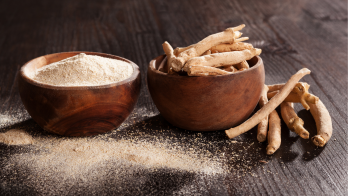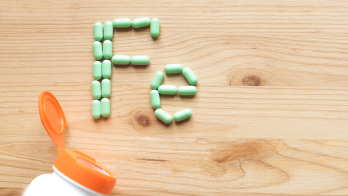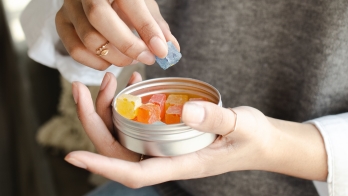The best science-backed supplements for stress relief
Certain lifestyle changes can relieve stress, but research shows that some supplements may also be helpful. From magnesium to turmeric, here are the best science-backed supplements for stress relief.
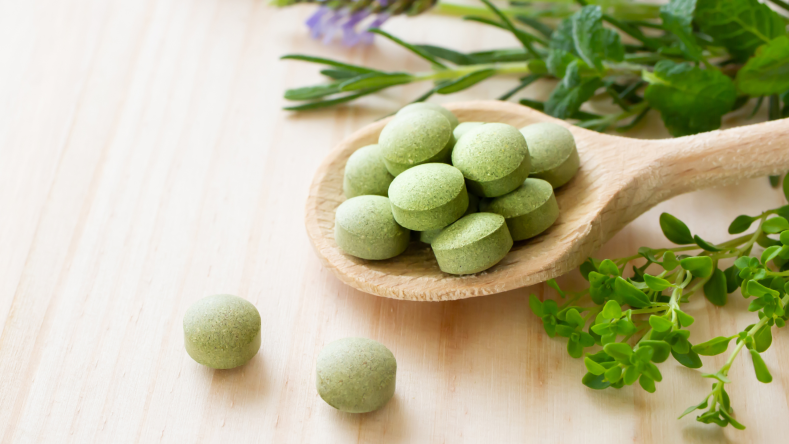
If you feel your stress levels have hit an all-time high, you’re not alone; over 55% of Americans report feeling stressed during the day [ 1
While occasional stress is normal, chronic stress can affect your inflammatory markers, immune system, and heart health and lead to elevated blood pressure and risk of stroke and heart attacks.
Thankfully, there are ways to alleviate those feelings of stress and anxiety. Implementing certain lifestyle changes, such as engaging in physical activity, practicing meditation, and prioritizing self-care are beneficial. Additionally, scientific evidence suggests that specific supplements could also help reduce stress and anxiety levels. While supplements aren’t a magic pill to alleviate all stress, some have demonstrated the ability to help lower anxiety levels, tame sleep troubles, and ease depression symptoms.
Before we further explore the best supplements for stress relief, let’s first understand what stress is and its impact on your health.
What is stress?
Stress is a natural human response defined as a state of worry or mental tension caused by a difficult situation [ 2
While acute stress could cause some temporary unrest, experts continue to find that being chronically stressed could contribute to negative health outcomes like anxiety, depression, digestive issues, headaches, muscle tension and pain, heart disease, high blood pressure, stroke, sleep problems, and weight gain [ 3

Get the best stress gummies with Elo Health
Elo Smart Gummies
Elo Smart Gummies deliver essential vitamins and minerals and incorporate health-boosting functional ingredients (such as ashwagandha, vitamin D, and zinc) to help alleviate stress and streamline your daily supplementation routine. They are also vegan, allergen-free, and added sugar-free. Get your Smart Gummies today
7 science-backed supplements for stress relief
While certain lifestyle choices (like exercise, sleep, and self-care) can help alleviate stress, certain supplements may also be a positive solution. Here are 7 of the best supplements for stress, according to science.
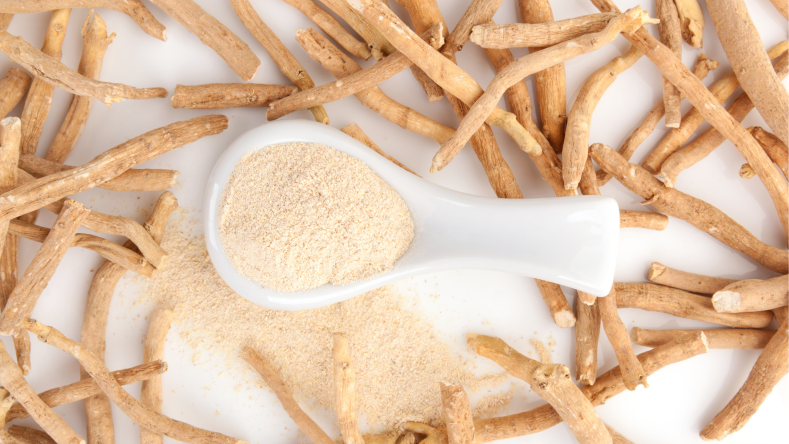
Ashwagandha
Ashwagandha
Ashwagandha has numerous health benefits, as studies show it may help reduce blood sugar, lower inflammation, boost immunity, and improve brain function [ 4 4
Dosing recommendations
Typical ashwagandha root extract dosages range from 250–600 mg/day, with the most common dosing protocol being 600 mg/day divided into two doses for morning and night [ 4
Get ashwagandha in your
Elo Smart Gummies
.
Precautions
You should avoid taking ashwagandha if you’re pregnant, breastfeeding, have a thyroid condition or autoimmune disease, or take immunosuppressants, sedatives, diabetes drugs, or blood pressure reducers [ 5
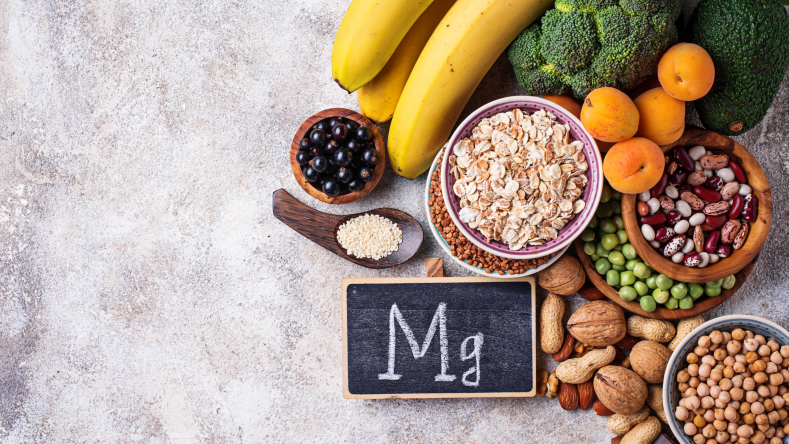
Magnesium
Magnesium 6 8
More research on magnesium and reduced sleep disturbances is needed, but some studies have demonstrated that magnesium supplements improve several measures of insomnia, including sleep efficiency and duration [ 9 10
Additionally, studies have found an interesting connection between stress and its impact on magnesium levels. Excess stress may increase the risk of magnesium deficiency, consequently increasing your body’s susceptibility to stress [ 7
Dosing recommendations
Magnesium needs vary by age and gender. Here is the recommended dietary allowance (RDA) for magnesium [ 6
Males 14-18 years: 410 mg/day
Males 19–30 years: 400 mg/day
Males 31+ years: 420 mg/day
Females 14-18 years: 360 mg/day (400 mg/day during pregnancy)
Females 19–30 years: 310 mg/day (350 mg/day during pregnancy)
Females 31+ years: 320 mg/day (360 mg/day during pregnancy)
Despite its importance in the body, it’s estimated that 60% of adults do not meet the RDA for magnesium [
11
].
Precautions
Magnesium supplementation isn’t right for everyone, as supplements may interact with certain medicines (including diuretics, heart medicines, and some antibiotics) and could cause negative issues if you have diabetes, kidney, heart, or intestinal disease [ 12
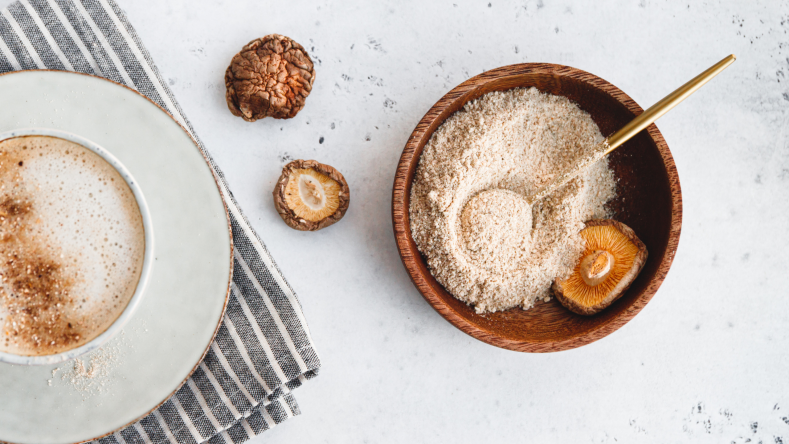
Medicinal mushrooms
Medicinal mushrooms
Whether you’re looking to improve sleep, boost mental health, or reduce inflammation, research suggests medicinal mushrooms can offer impressive benefits. For instance, studies show that reishi mushrooms may have anticancer properties, reduce inflammation, improve sleep, reduce stress, alleviate anxiety, and ease depression [ 13 14
Dosing recommendations
The dosage for medicinal mushrooms depends on your age, weight, height, and strength of the supplement. As such, you should carefully read the label instructions before taking medicinal mushrooms.
Precautions
Each medicinal mushroom has different precautions, so talk with your healthcare provider to find the one that works best for you.
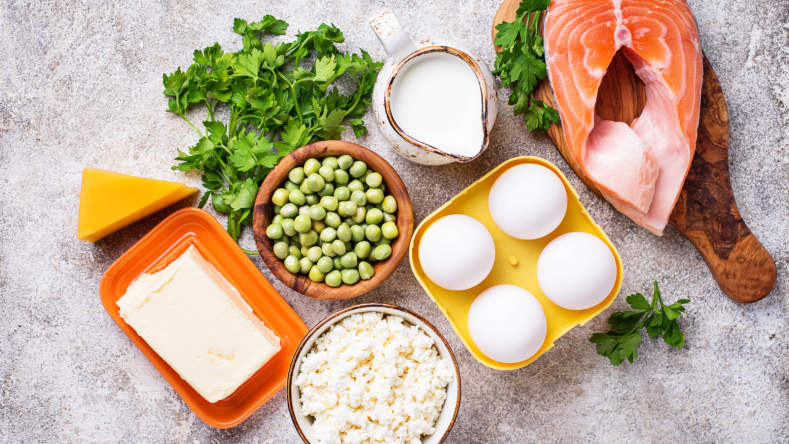
Vitamin D
Otherwise known as the “sunshine vitamin,” vitamin D 15
There is also some evidence that vitamin D plays a role in cognitive function, as deficiency has been associated with increased symptoms of depression and anxiety, poor sleep quality, and bad moods, all of which can negatively impact stress levels [ 16 17 18
Dosing recommendations
For vitamin D, the recommended daily allowance for men and women 19-70 years old is 600 - 800 IU, but some evidence suggests that 2,000+ IU may be helpful for certain people [ 15
Get vitamin D in your
Elo Smart Gummies
.
Precautions
When consumed in excess, vitamin D can cause toxicity by way of hypercalcemia, which can lead to nausea, vomiting, muscle weakness, loss of appetite, dehydration, polyuria, excessive thirst, and kidney stones [ 15
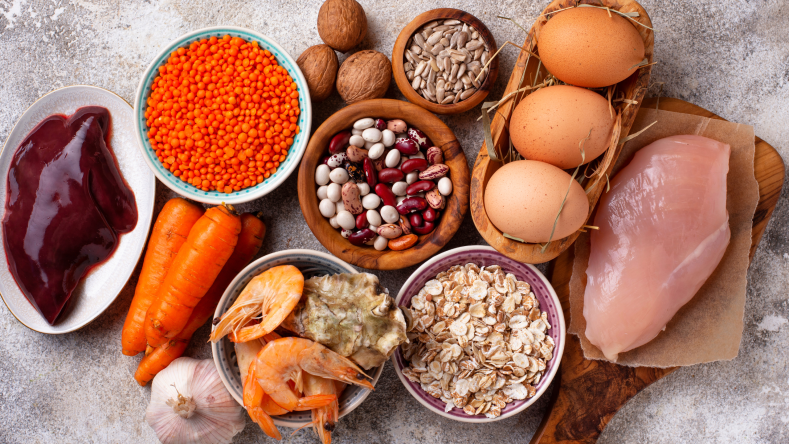
Zinc
Zinc 19 20
Dosing recommendations
The RDA for zinc is as follows [ 19
Men over 14 years old: 11 mg/day
Women 14-18 years old: 9 mg/day (12 mg/day and 13 mg/day for breastfeeding and lactation, respectively)
Women over 19 years old: 8 mg/day (11 mg/day and 12 mg/day for breastfeeding and lactation, respectively)
Get zinc in your
Elo Smart Gummies
.
Precautions
While zinc supplements are usually well-tolerated, they can cause nausea, vomiting, diarrhea, and stomach pain in some people, along with coughing, headache, and fever in those taking more than 40 mg/day [ 21 19
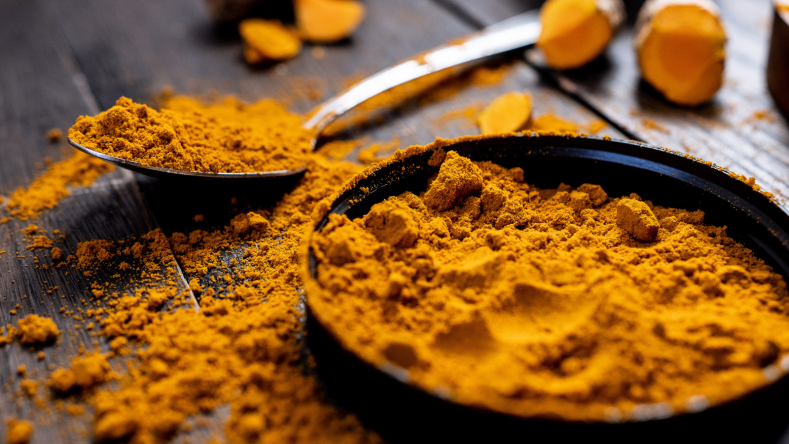
Turmeric
Turmeric 22
Furthermore, studies have found that curcumin could be effective in reducing anxiety symptoms, as it may elevate serotonin and lower stress hormones like cortisol [ 23
Dosing recommendations
There is no standard dose for turmeric; however, the World Health Organization (WHO) has established 1.4 mg of curcumin/pound of body weight (0–3 mg/kg) as an acceptable daily intake [ 24
Turmeric supplementation that provides 500-1,000 mg/day of curcumin may help improve symptoms of depression and anxiety and offer numerous other health benefits related to inflammation, arthritis, depression, and intestinal bowel disease [ 25
Get turmeric in your Elo Smart Gummies
Precautions
While turmeric typically doesn't have serious side effects, mild side effects (like stomach upset, nausea, dizziness, or diarrhea) may be more common when taken at higher doses.
You should avoid taking turmeric if you are pregnant, breastfeeding, have diabetes, gallstones, gallbladder, kidney disease, bleeding disorders, or immunity problems [ 26
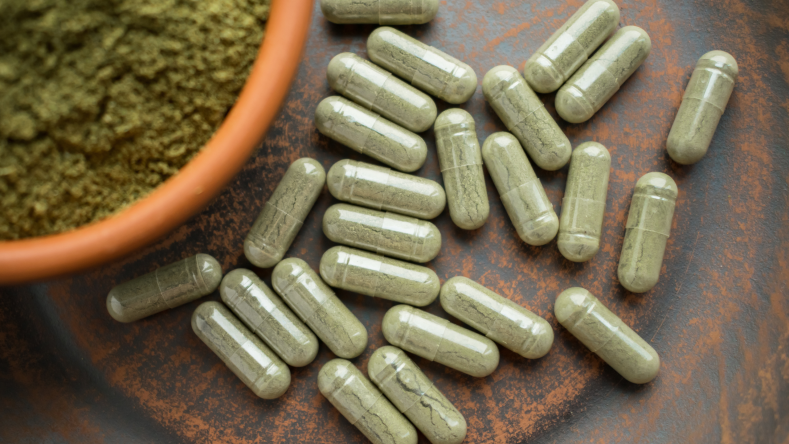
L-theanine
L-theanine is an amino acid found primarily in black and green tea
Studies have demonstrated L-theanine’s ability to improve stress-related symptoms (such as depression, anxiety, and insomnia), as people who took it experienced fewer sleep quality problems and sleep disturbances throughout the night [ 27 28
Furthermore, research indicates that L-theanine may promote mental health in the general population with stress-related ailments and cognitive impairments and reduce feelings of stress and anxiety [ 29 30
Dosing recommendations
Experts suggest taking 200-400 mg/L-theanine for 4-8 weeks, but talk with your healthcare provider to see if this is right for you [ 31
Precautions
Because L-theanine may lower blood pressure, it could increase the effects of antihypertensive drugs. As such, talking with your healthcare provider before using this supplement is recommended.
Summary
Occasional stress is normal, but chronic stress can affect your inflammatory markers, immune system, and heart health, leading to elevated blood pressure and risk of stroke and heart attacks.
While certain lifestyle changes (like physical activity, meditation, and self-care) are beneficial, science shows that certain supplements may also make a difference. Supplements such as ashwagandha, magnesium, L-theanine, and vitamin D have been shown to lower anxiety levels, tame sleep troubles, and ease depression symptoms. While they aren’t meant to be a cure-all, they may be beneficial when added to your daily routine.
Disclaimer: The text, images, videos, and other media on this page are provided for informational purposes only and are not intended to treat, diagnose or replace personalized medical care.
Key takeaways
While supplements aren’t a replacement for other stress relief tactics, science shows that certain ones can prove beneficial for alleviating stress, improving sleep, and reducing symptoms of anxiety.
Ashwagandha, turmeric, magnesium, L-theanine, medicinal mushrooms, vitamin D, and zinc have been shown to help reduce blood pressure, relieve stress, reduce depressive symptoms, lower anxiety, and improve sleep quality.
While these supplements can be beneficial for stress relief, they can also have some adverse side effects. Talk with your healthcare provider before adding any to your supplement routine.
Elo Smart Gummies deliver essential vitamins and minerals and incorporate health-boosting functional ingredients (such as ashwagandha, vitamin D, and zinc) to help alleviate stress and streamline your daily supplementation routine. They are also vegan, allergen-free, and added sugar-free.
Get your Smart Gummies today
!
References
Daily Life. The American Institute of Stress. (2022, March 30). Retrieved October 30, 2023, from
https://www.stress.org/daily-life
World Health Organization. (n.d.). Stress. World Health Organization.
https://www.who.int/news-room/questions-and-answers/item/stress
American Psychological Association. (n.d.). How stress affects your health. American Psychological Association.
https://www.apa.org/topics/stress/health
Examine.com. (2023, August 1). Ashwagandha benefits, dosage, and side effects. Examine.
https://examine.com/supplements/ashwagandha/
WebMD. (n.d.). Ashwagandha: Overview, uses, side effects, precautions, interactions, dosing and reviews. WebMD.
https://www.webmd.com/vitamins/ai/ingredientmono-953/ashwagandha
U.S. Department of Health and Human Services. (n.d.). Office of dietary supplements - magnesium. NIH Office of Dietary Supplements.
https://ods.od.nih.gov/factsheets/Magnesium-HealthProfessional/
Pickering, G., Mazur, A., Trousselard, M., Bienkowski, P., Yaltsewa, N., Amessou, M., Noah, L., & Pouteau, E. (2020). Magnesium Status and Stress: The Vicious Circle Concept Revisited. Nutrients, 12(12), 3672.
https://doi.org/10.3390/nu12123672
MediLexicon International. (n.d.). Magnesium for sleep: Benefits and how to take it. Medical News Today.
https://www.medicalnewstoday.com/articles/magnesium-for-sleep
Abbasi, B., Kimiagar, M., Sadeghniiat, K., Shirazi, M. M., Hedayati, M., & Rashidkhani, B. (2012). The effect of magnesium supplementation on primary insomnia in elderly: A double-blind placebo-controlled clinical trial. Journal of research in medical sciences : the official journal of Isfahan University of Medical Sciences, 17(12), 1161–1169.
American Psychological Association. (n.d.). Stress and sleep. American Psychological Association.
https://www.apa.org/news/press/releases/stress/2013/sleep
Volpe, S. L. (2015). Magnesium and the athlete. Current Sports Medicine Reports, 14(4), 279–283.
https://doi.org/10.1249/jsr.0000000000000178
WebMD. (n.d.). Magnesium: Overview, uses, side effects, precautions, interactions, dosing and reviews. WebMD.
https://www.webmd.com/vitamins/ai/ingredientmono-998/magnesium
Venturella, G., Ferraro, V., Cirlincione, F., & Gargano, M. L. (2021). Medicinal Mushrooms: Bioactive Compounds, Use, and Clinical Trials. International journal of molecular sciences, 22(2), 634.
https://doi.org/10.3390/ijms22020634
Vetvicka, V., & Vetvickova, J. (2014). Immune-enhancing effects of Maitake (Grifola frondosa) and Shiitake (Lentinula edodes) extracts. Annals of translational medicine, 2(2), 14.
https://doi.org/10.3978/j.issn.2305-5839.2014.01.05
U.S. Department of Health and Human Services. (n.d.). Office of dietary supplements - vitamin D. NIH Office of Dietary Supplements.
https://ods.od.nih.gov/factsheets/VitaminD-HealthProfessional/
Akpınar, Ş., & Karadağ, M. G. (2022). Is Vitamin D Important in Anxiety or Depression? What Is the Truth?. Current nutrition reports, 11(4), 675–681.
https://doi.org/10.1007/s13668-022-00441-0
Abboud M. (2022). Vitamin D Supplementation and Sleep: A Systematic Review and Meta-Analysis of Intervention Studies. Nutrients, 14(5), 1076.
https://doi.org/10.3390/nu14051076
Guzek, D., Kołota, A., Lachowicz, K., Skolmowska, D., Stachoń, M., & Głąbska, D. (2021). Association between Vitamin D Supplementation and Mental Health in Healthy Adults: A Systematic Review. Journal of clinical medicine, 10(21), 5156.
https://doi.org/10.3390/jcm10215156
U.S. Department of Health and Human Services. (n.d.). Office of dietary supplements - zinc. NIH Office of Dietary Supplements.
https://ods.od.nih.gov/factsheets/Zinc-HealthProfessional/
Totten, M. S., Davenport, T. S., Edwards, L. F., & Howell, J. M. (2023). Trace Minerals and anxiety: A review of zinc, copper, iron, and selenium. Dietetics, 2(1), 83–103.
https://doi.org/10.3390/dietetics2010008
Zinc - StatPearls - NCBI Bookshelf. (n.d.).
https://www.ncbi.nlm.nih.gov/books/NBK547698/
Hewlings, S. J., & Kalman, D. S. (2017). Curcumin: A Review of Its Effects on Human Health. Foods (Basel, Switzerland), 6(10), 92.
https://doi.org/10.3390/foods6100092
Ramaholimihaso, T., Bouazzaoui, F., & Kaladjian, A. (2020). Curcumin in depression: Potential mechanisms of action and current evidence—A narrative review. Frontiers in Psychiatry, 11.
https://doi.org/10.3389/fpsyt.2020.572533
Amalraj, A., Pius, A., Gopi, S., & Gopi, S. (2017). Biological activities of curcuminoids, other biomolecules from turmeric and their derivatives – a review. Journal of Traditional and Complementary Medicine, 7(2), 205–233.
https://doi.org/10.1016/j.jtcme.2016.05.005
Examine.com. (2023, July 6). Curcumin benefits, dosage, and side effects. Examine.
https://examine.com/supplements/curcumin/
WebMD. (n.d.). Turmeric: Overview, uses, side effects, precautions, interactions, dosing and reviews. WebMD.
https://www.webmd.com/vitamins/ai/ingredientmono-662/turmeric
Hidese, Ogawa, Ota, Ishida, Yasukawa, Ozeki, & Kunugi. (2019). Effects of L-theanine administration on stress-related symptoms and cognitive functions in healthy adults: A randomized controlled trial. Nutrients, 11(10), 2362.
https://doi.org/10.3390/nu11102362
Kim, S., Jo, K., Hong, K.-B., Han, S. H., & Suh, H. J. (2019). GABA and l-theanine mixture decreases sleep latency and improves NREM sleep. Pharmaceutical Biology, 57(1), 64–72.
https://doi.org/10.1080/13880209.2018.1557698
Hidese, S., Ogawa, S., Ota, M., Ishida, I., Yasukawa, Z., Ozeki, M., & Kunugi, H. (2019). Effects of L-Theanine Administration on Stress-Related Symptoms and Cognitive Functions in Healthy Adults: A Randomized Controlled Trial. Nutrients, 11(10), 2362.
https://doi.org/10.3390/nu11102362
Yoto, A., Motoki, M., Murao, S., & Yokogoshi, H. (2012). Effects of L-theanine or caffeine intake on changes in blood pressure under physical and psychological stresses. Journal of physiological anthropology, 31(1), 28.
https://doi.org/10.1186/1880-6805-31-28
WebMD. (n.d.). Theanine: Overview, uses, side effects, precautions, interactions, dosing and reviews. WebMD.
https://www.webmd.com/vitamins/ai/ingredientmono-1053/theanine

